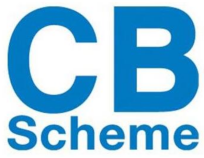
CB system was initiated by CEE (former European National Commission for electrical equipment qualification testing) and was incorporated into IEC in 1985.
IECEE means "the IEC system for compliance testing and certification of electrical equipment" - International Electrotechnical Commission Organization for the qualification testing and certification of electrical products. The official name of CB system is "scheme of the IECEE for actual recognition of test certificates for electrical equipment" - IECEE electric product test certificate mutual recognition system. The abbreviation of CB system means "certification bodies' scheme" - certification institution system.
IECEE CB system is the first real international system for mutual recognition of safety test reports of electrical products. Multilateral agreements are formed between national certification bodies (NCBs) in each country, and manufacturers can obtain national certification from other member states of the CB system by virtue of a CB test certificate issued by an NCB.
CB system is based on international IEC standards. If the national standards of some member states are not completely consistent with IEC standards, the existence of national differences is allowed, but they should be published to other members. CB system uses CB test certificate to confirm that the product samples have successfully passed the appropriate test, and meet the relevant IEC requirements and the requirements of relevant member states.
The main goal of CB system is to promote international trade, which means to make manufacturers more close to the ideal goal of "one test, multiple applications" by promoting the unified coordination between national standards and international standards and cooperation of product certification agencies.
CB (certification agency) process is established based on international agreement of IECEE "world system for qualified testing and certification of electrical products". It is an agreement between the national certification agencies in the system, and is committed to mutual recognition of the audit results of electrical products. Countries participating in the CB system are designated agencies from 53 countries, including major industrialized countries, and are affiliated to the CB certification process - it is considered to be the basis for domestic certification in many countries in the EU, including those that have not yet become full members. CB certification is sample testing only. If the foreign certification mark is converted, factory inspection is required. CB certificate must be presented at the same time as CB test report. When applying for CB certificate, the applicant shall pay attention to explaining to CQC and CBTL the country / region to export, so that the certification authority can help understand the standard difference in the country, arrange the difference experiment in time, avoid the applicant applying to the foreign certification agency / testing institution to make up the actual inspection, postpone the approval process and invest more expenses. CB certification is applicable in CB system member countries, covering the developed countries and most developing countries. CE mark is applicable to 28 European countries such as the European Union. CB certification only covers the safety requirements. Even if CB certification contains EU differences, if the product is covered by other EU directives (such as EMC, mechanical directive, etc.), CB certification cannot indicate that the CE mark has been met, and it can only indicate that the product has met the requirements of Low Voltage Directive (LVD) of CE mark, and CE cannot be pasted on the product Mark, must supplement the relevant EMC and other tests. CE mark contains several instructions, but when the product is only applicable to low voltage directive (LVD), CB certification with EU difference proves that it has met the requirements of CE mark. Therefore, enterprises can paste CE mark on the product.
For application of CB test certificate, the following points should be noted:
-The application for CB test certificate can be submitted by the applicant to any NCB covering the scope of the product.
-The applicant may be either a manufacturer or an entity authorized to represent the manufacturer.
-The application may include one or more factories in one or more countries that produce products.
-Applicants / manufacturers / factories located in countries without IECEE member agencies will be required to pay an additional fee of CHF 150 for each CB test certificate to compensate for the operating costs of the system. This fee is charged by NCB who accepts CB test certificate application and will be entered into IECEE's account.
-Applicants may request NCB to test the product based on the country of export.
The following procedures are included in the manufacturer's product certification to obtain the target market:
-Application to NCB of target country;
-CB test certificate;
-CB test report (may include national differences);
-Provide samples of products to NCB in target markets when required.
The purpose of the sample is to verify that the product is consistent with the product originally issued for NCB testing and has covered national differences.
CB test certificate and CB test report
National differences
National difference is the difference between the standards of a country and the corresponding international standards. All national differences in countries that have joined the CB system are submitted to the IECEE Secretariat and published in the CB bulletin.










